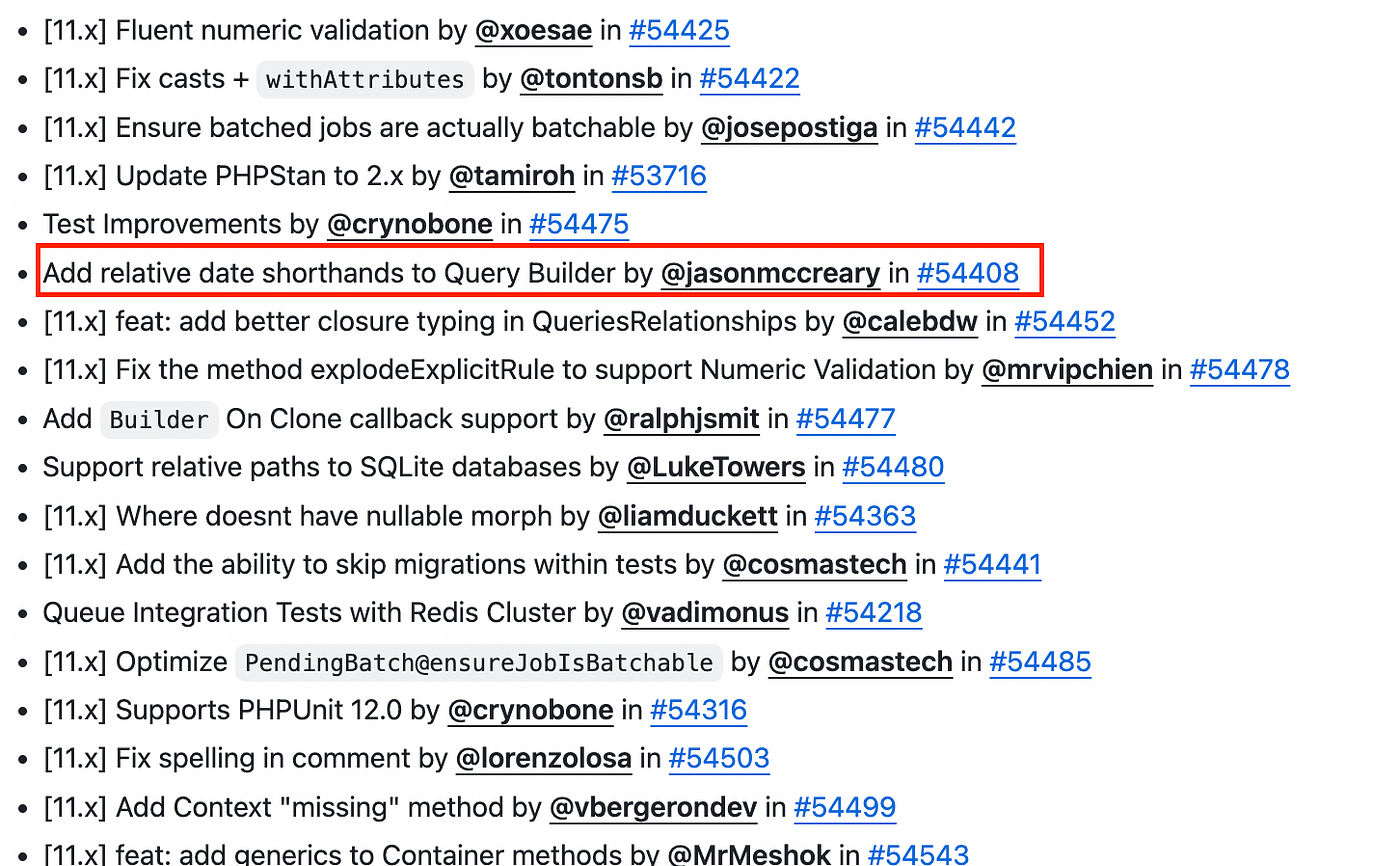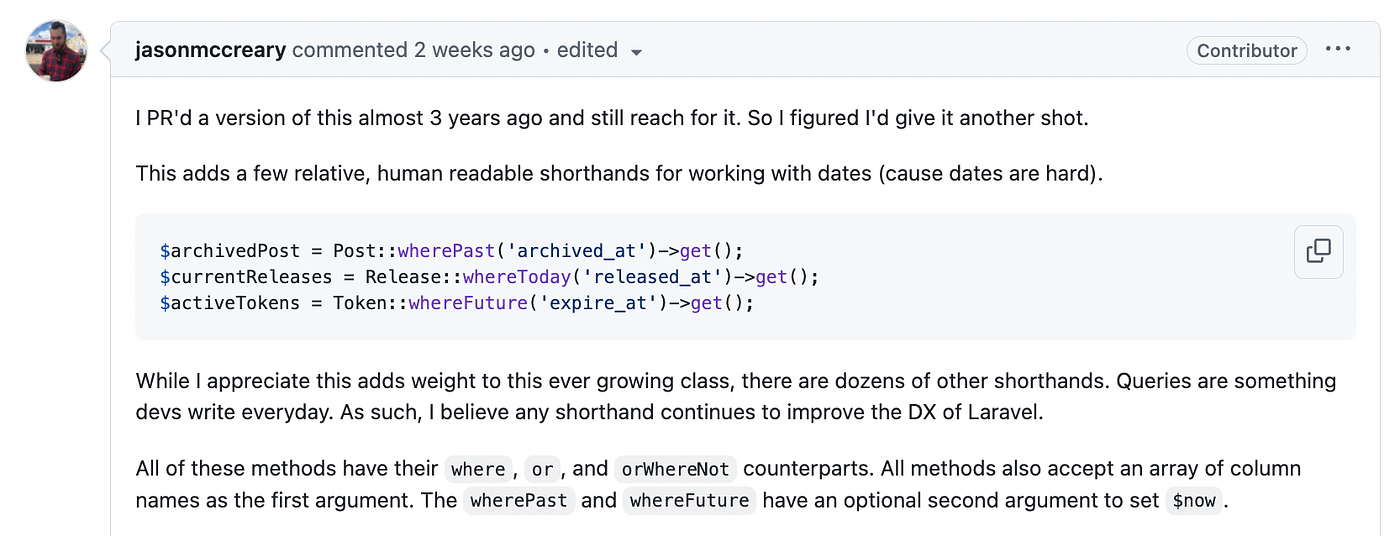As a freelance developer without any active projects, I randomly decided to check out what’s new in Laravel 11 before Laravel 12 drops. This just adds to my never-ending learning cycle, making me feel even more jobless, haha. While browsing the changelog on Laravel’s GitHub, I came across some interesting updates that caught my attention.

https://github.com/laravel/framework/releases
Wow, it’s already 2025, and people still care about this. Why not? Since 2017, back when I was a student working on various projects, I often used logic to check whether deadlines, like payments, had already passed on a given day.
Code Implementation
Let’s take a look at how to apply this in code:
1. Checking if a payment is overdue
If I were to write this in code, it would look something like this:
use App\Models\Payment;
$overduePayments = Payment::where('due_date', '<', date('Y-m-d'))->get();
// `due_at` is the column name.
2. Example Using Carbon
I’m not really a fan of this approach. While Carbon is available in Laravel, using it this way feels somewhat unnecessary. Personally, I prefer sticking to PHP’s built-in date() function—it helps me stay familiar with native PHP, so I don’t feel lost when coding outside of Laravel. Well, I guess I can't blame myself—I don’t code that often anyway, haha.
use Carbon\Carbon;
use App\Models\Payment;
$overduePayments = Payment::where('due_date', '<', Carbon::today())->get();
// `due_at` is the column name.
3. Example using if logic
This approach is a bit more verbose, but if you’re coming from another programming language like Go, it might feel more familiar and comfortable.
$payment = Payment::where('id', $id)->first();
if ($payment && $payment->due_date < Carbon::today()) {
echo "The payment is overdue.";
} else {
echo "The payment is not yet due.";
}
// `due_at` is the column name.
4. The new method introduced in Laravel 11.42
Check out the example code below — it’s much more concise, right? You can simply use the column name directly
$payment = Payment::where('id', $id)->wherePast('due_at')->get();
// `due_at` is the column name.
What are Relative Date Shorthands?
With this method, you can easily find data with due dates in the past, future, today, before today, or after today without writing long queries.
Example:
wherePast('due_at')→ Finds data with a date before today.whereFuture('due_at')→ Finds data with a date in the future.whereToday('due_at')→ Finds data with a date exactly today.whereBeforeToday('due_at')→ Finds data with a date before today.whereAfterToday('due_at')→ Finds data with a date after today.
DB::table('invoices')
->wherePast('due_at')
->get();
DB::table('invoices')
->whereFuture('due_at')
->get();
DB::table('invoices')
->whereNowOrPast('due_at')
->get();
DB::table('invoices')
->whereNowOrFuture('due_at')
->get();
DB::table('invoices')
->whereToday('due_at')
->get();
DB::table('invoices')
->whereBeforeToday('due_at')
->get();
DB::table('invoices')
->whereAfterToday('due_at')
->get();
Additionally, there are also or and not versions, along with support for an array of columns. This method also allows setting the current date ($now) if needed.
Intermezzo

Pull Request Laravel
Pretty funny, this PR has apparently been around for three years, according to him. Big thanks to JasonMcCreary for contributing to Laravel. :)